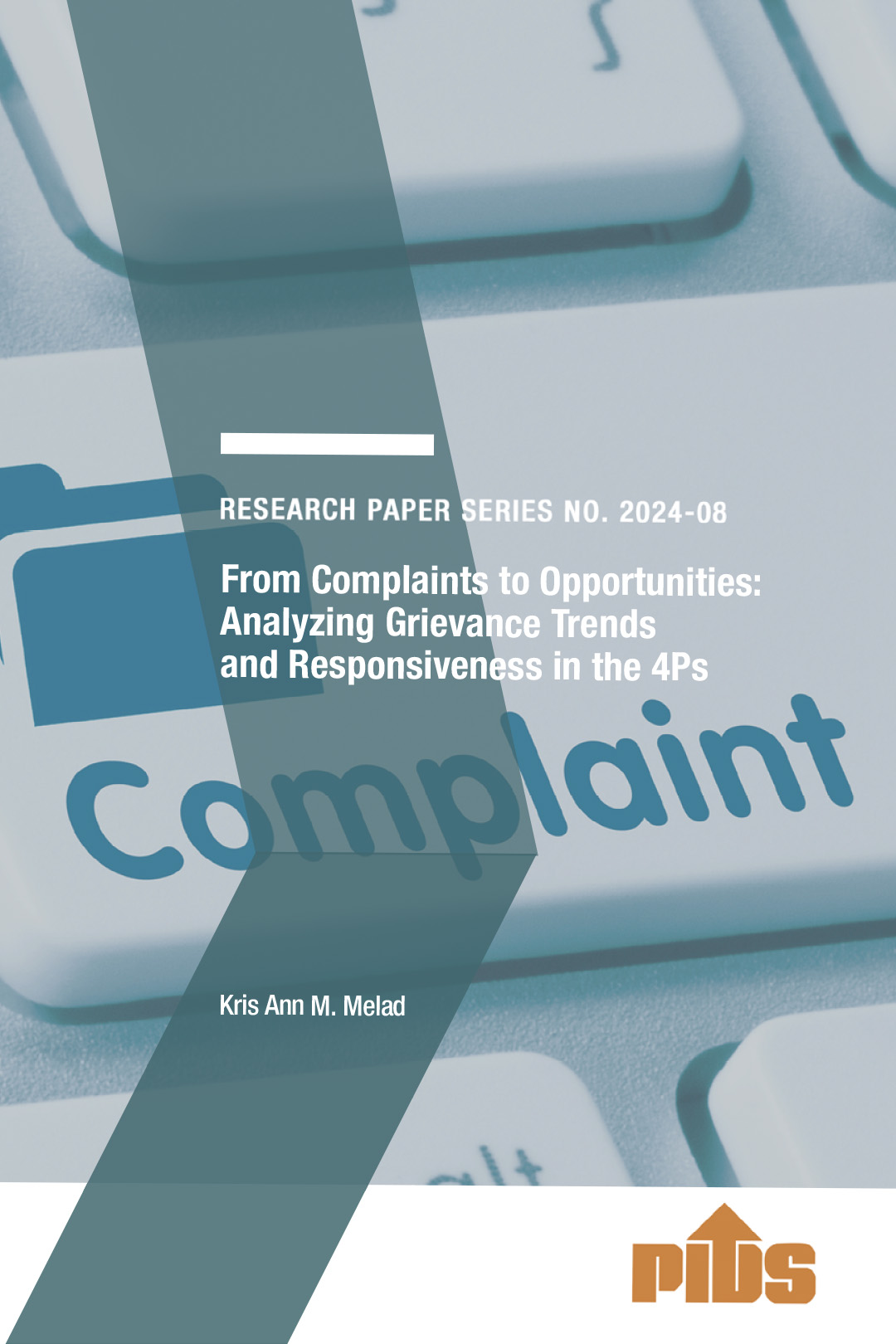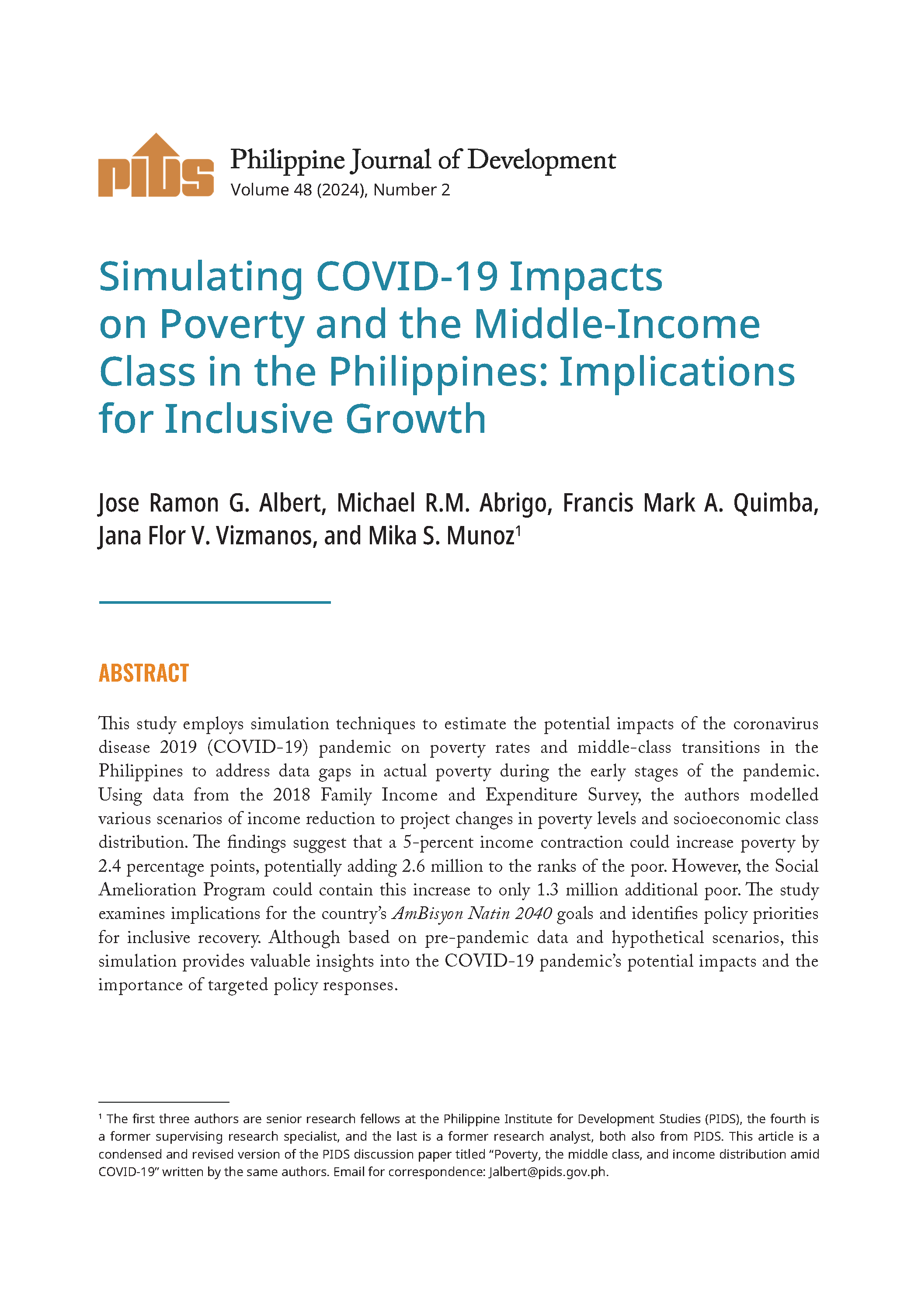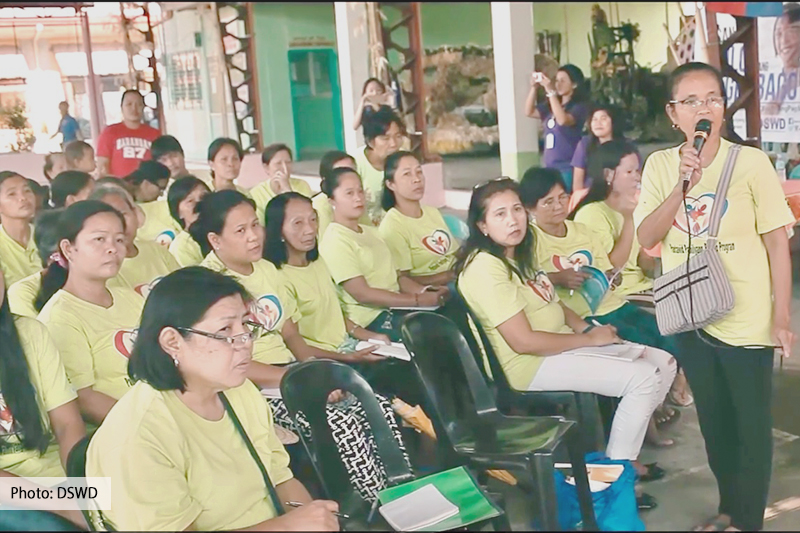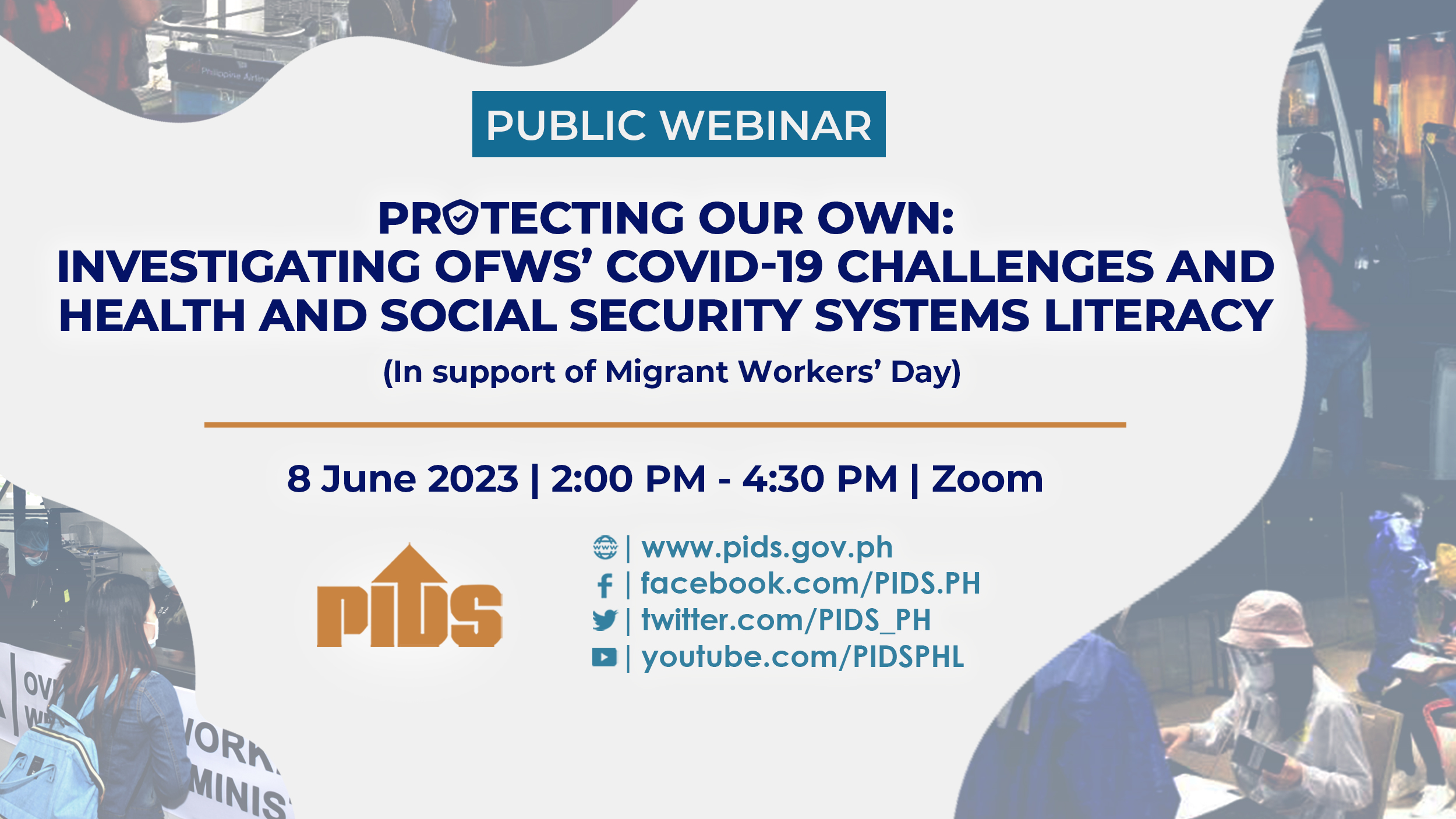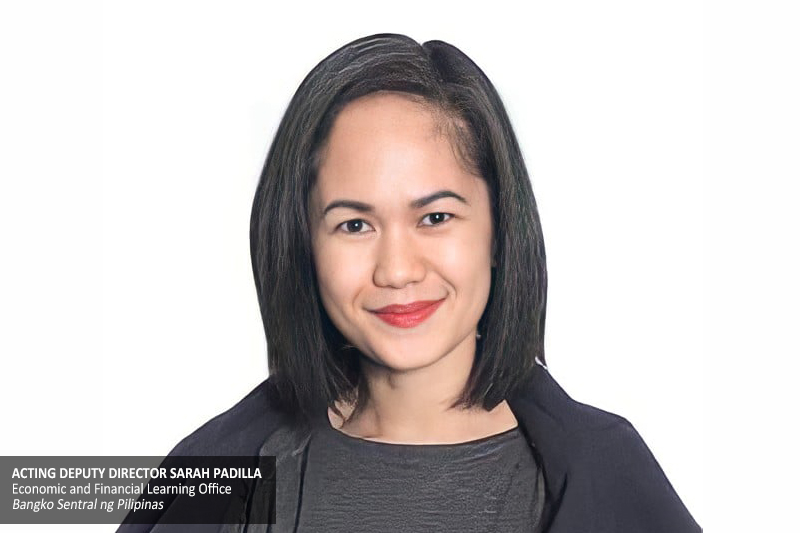
The Bangko Sentral ng Pilipinas (BSP) supports the efforts of the Department of Social Welfare and Development (DSWD) to promote financial literacy and inclusion among the Pantawid Pamilyang Pilipino Program (4Ps) beneficiaries.
BSP Economic and Financial Literacy Office Acting Deputy Director Sarah Padilla emphasized that 4Ps beneficiaries need an “intensified” financial literacy program, given that only a small portion of program recipients can save and invest the cash grants. The 4Ps is a flagship program of the government lodged with the DSWD to help extremely poor households improve their health, nutrition, and education.
Padilla, a discussant at the webinar organized by the Philippine Institute for Development Studies, said the BSP has collaborated with DSWD on projects that promote financial literacy among 4Ps beneficiaries. For instance, they have conducted financial literacy training in the country’s 17 regions.
The Bank also provided inputs to the program’s financial literacy manual and provided capacity-building sessions to the trainers who will handle the rollout of the manual to 4Ps beneficiaries.
The manual, which includes lessons on financial planning, saving, budgeting, microcredit, microinsurance, and investing, was created to “improve the resiliency and financial security of [the] beneficiaries”.
Padilla added that early this year, DSWD released its guidelines on the implementation of transaction accounts that mandates all household beneficiaries to undergo a financial literacy program.
“Through this [effort, we hope] to see improvements in the financial literacy and financial capability levels of our 4Ps beneficiaries,” she said.
The BSP also promotes financial inclusion through account ownership to allow beneficiaries to access formal financial services.
With the increasing access to more complex financial products and services, Padilla highlighted the need to provide financial education and consumer protection lectures to 4Ps beneficiaries.
“The BSP supports supplementary interventions to encourage grantees to be self-sustaining and ensure that they do not take on unnecessary financial risks and avoid falling victim to frauds and scams,” she said.
Moreover, the Bank continues to enforce financial consumer protection measures to help increase people's trust and confidence in digital financial services and the financial system.
The BSP acting deputy director also mentioned that the Department of Education had issued a policy mandating the integration of financial education in the basic education system “to ensure sustained delivery of foundational knowledge on money management for the Filipino youth”.
Amid the pandemic, the BSP has been working on multiple strategic programs for financial inclusion to achieve their targets under the Digital Payments Transformation Roadmap, which aims to provide “70 percent of Filipinos with formal transaction accounts and to digitize at least 50 percent of the total volume of retail payments by 2023”.
“We are mindful that the numbers only matter if they truly make a positive change in the lives of our kababayan. Financial inclusion is not an end in itself. It is also a means to achieve broader aspiration for our kababayan for them to [be] financially healthy and [have] comfortable lifestyles,” Padilla concluded. ###
Watch the video of this seminar at https://www.facebook.com/PIDS.PH/videos/1260015987759939 or https://www.youtube.com/watch?v=QhW3qtYP4aY.
For more videos of PIDS events, go to https://www.pids.gov.ph/videos.
BSP Economic and Financial Literacy Office Acting Deputy Director Sarah Padilla emphasized that 4Ps beneficiaries need an “intensified” financial literacy program, given that only a small portion of program recipients can save and invest the cash grants. The 4Ps is a flagship program of the government lodged with the DSWD to help extremely poor households improve their health, nutrition, and education.
Padilla, a discussant at the webinar organized by the Philippine Institute for Development Studies, said the BSP has collaborated with DSWD on projects that promote financial literacy among 4Ps beneficiaries. For instance, they have conducted financial literacy training in the country’s 17 regions.
The Bank also provided inputs to the program’s financial literacy manual and provided capacity-building sessions to the trainers who will handle the rollout of the manual to 4Ps beneficiaries.
The manual, which includes lessons on financial planning, saving, budgeting, microcredit, microinsurance, and investing, was created to “improve the resiliency and financial security of [the] beneficiaries”.
Padilla added that early this year, DSWD released its guidelines on the implementation of transaction accounts that mandates all household beneficiaries to undergo a financial literacy program.
“Through this [effort, we hope] to see improvements in the financial literacy and financial capability levels of our 4Ps beneficiaries,” she said.
The BSP also promotes financial inclusion through account ownership to allow beneficiaries to access formal financial services.
With the increasing access to more complex financial products and services, Padilla highlighted the need to provide financial education and consumer protection lectures to 4Ps beneficiaries.
“The BSP supports supplementary interventions to encourage grantees to be self-sustaining and ensure that they do not take on unnecessary financial risks and avoid falling victim to frauds and scams,” she said.
Moreover, the Bank continues to enforce financial consumer protection measures to help increase people's trust and confidence in digital financial services and the financial system.
The BSP acting deputy director also mentioned that the Department of Education had issued a policy mandating the integration of financial education in the basic education system “to ensure sustained delivery of foundational knowledge on money management for the Filipino youth”.
Amid the pandemic, the BSP has been working on multiple strategic programs for financial inclusion to achieve their targets under the Digital Payments Transformation Roadmap, which aims to provide “70 percent of Filipinos with formal transaction accounts and to digitize at least 50 percent of the total volume of retail payments by 2023”.
“We are mindful that the numbers only matter if they truly make a positive change in the lives of our kababayan. Financial inclusion is not an end in itself. It is also a means to achieve broader aspiration for our kababayan for them to [be] financially healthy and [have] comfortable lifestyles,” Padilla concluded. ###
Watch the video of this seminar at https://www.facebook.com/PIDS.PH/videos/1260015987759939 or https://www.youtube.com/watch?v=QhW3qtYP4aY.
For more videos of PIDS events, go to https://www.pids.gov.ph/videos.

